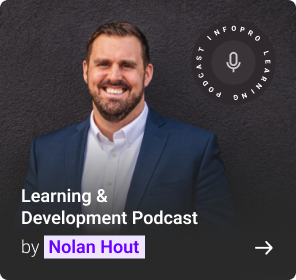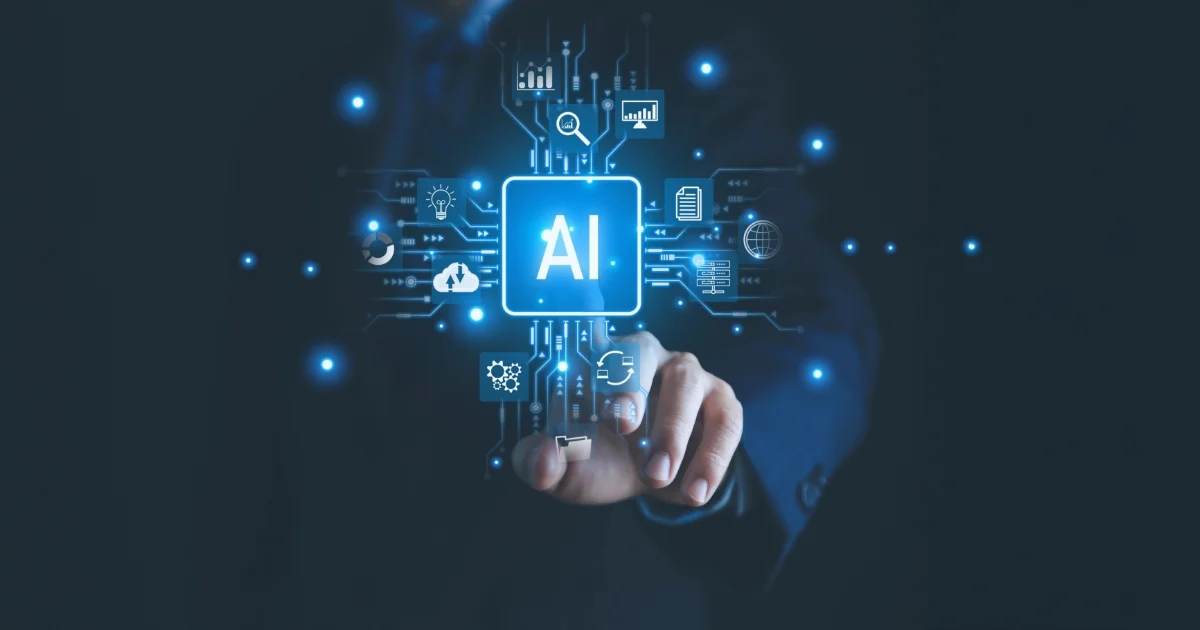With change being the only constant in business today, organizations must ensure their workforce is agile, trained, and up-to-date. Conventional, rote training styles — such as dated PowerPoint slides or general seminars — are no longer sufficient. That is where AI-powered managed learning services come in — a new paradigm that integrates advanced technology with management strategies to create scalable, effective learning solutions. Artificial intelligence-managed learning solutions for corporate learning offer unmatched efficiency and personalization, ultimately transforming organizational success. Let us explore how this future is shaping and why it matters.
The Shift to AI-Driven Learning
The corporate training market is booming. According to the report by Allied Market Research, the global corporate training market was valued at $361.5 billion in 2023 and is projected to reach $805.6 billion by 2035, growing at a CAGR of 7% from 2024 to 2035. This upward trend signals a skills-focused golden era for businesses. But how we train people has not evolved for the digital age — until now. AI is changing how we create, deliver, and measure L&D initiatives.
AI is more than a buzzword — it’s a game-changer. According to multiple reports, learning and development (L&D) professionals say proactively building skills for the future is critical to navigating the changing nature of work. Staying strong is vital, and AI arrives as the ideal companion, offering scalable solutions that respond to individual specifications and the aspirations of organizations.
What Is AI-Driven Managed Learning Services?
Managed learning services are outsourced solutions for an organization’s end-to-end learning and development requirements. However, their value increases exponentially when powered by AI. MLS powered by AI technology (Intelligent Automation, Predictive Analytics, and Adaptive Learning) builds a compliant, scalable training ecosystem. Key components include:
- Personalized Learning Paths: AI will analyze employee performance data, job roles, and career objectives and design the most appropriate and customized training programs for them.
- Content Curation and Creation: From videos to interactive simulations, AI tools generate and recommend relevant learning materials based on real-time needs.
- Performance Monitoring: The advanced analytics track progress, show areas of improvement, and recommend measures to bridge the gap.
- Scalability: Cloud-based platforms enable organizations to deploy training across thousands of employees and geographies instantly.
A report released in 2024 from Deloitte found that companies adopting AI-powered learning solutions saw a 24% increase in employee output and a 30% reduction in training costs. These figures underscore the potential for an AI-driven MLS to deliver next-level efficiency and influence.
The Role of AI in Transforming Learning
AI’s ability to process huge quantities of information and learn on the go puts it in a position to revolutionize learning.
- Adaptive Learning: AI modifies the level of challenge and the content delivery rate depending on a learner’s progress. As a prime example, platforms such as LinkedIn Learning are generating AI-driven recommendations on courses that align with each user’s strengths and weaknesses.
- Predictive Skill Mapping: AI can predict what skills will be in demand by analyzing industry trends and internal data. Gartner predicts that generative AI will require 80% of the engineering workforce to upskill by 2027. For example, natural language processing (NLP) enables AI-driven chatbots and virtual assistants to provide round-the-clock support, answering questions and helping learners navigate difficult concepts.
- Gamification and Engagement: AI boosts motivation levels through gamified elements—especially points, badges, and leaderboards—that are leveraged in the training modules. This feature allows AI-powered MLS to advance beyond superficial rote learning, encouraging critical thinking, problem-solving, and creativity—abilities in high demand in the workplace.
Scalable Business Impact: Why It Matters
For organizations, learning has to deliver much more than individual growth; but rather the end goal is results: revenue, customer satisfaction and operational excellence. AI-enabled MLS makes it the scalability traditional approaches cannot. And this is how that translates to business impact:
- Cost-Effectiveness: Without the need to be in person, businesses can invest in content creation and delivery without the crippling on-site costs.
- Gap-free Training: Cloud-based MLS platforms allow companies to deliver training to multiple hierarchies, ensuring compliance and consistency.
- Focused Learning: AI allows companies to get to the point of what skills need to be learnt.
- Data-Driven Decisions: HR leaders can use analytics in real-time to track training effectiveness, empowering them to enhance programs and allocate resources effectively.
Take the example of Amazon, which spent $700 million in 2019 retraining 100,000 employees with AI-based tools and aiming for in-demand jobs by 2025. The company saw an improvement in overall operational effectiveness, with a significant portion of this gain directly related to its scalable learning efforts.
Challenges & Considerations
AI-powered MLS offers immense potential, but not without challenges. Chief among them is data privacy. AI systems require vast employee data to be effective, necessitating transparency and compliance with regulations like General Data Protection Regulation (GDPR) and California Consumer Privacy Act (CCPA).
There’s also the risk of over-reliance on technology. Tech can enhance that experience but cannot replace the human touch — mentorship, collaboration and emotional intelligence — that are key to learning. Balancing AI automation with human insight will be key to maximizing outcomes.
Conclusion
The future of learning isn’t a distinct concept— it’s already here. AI–powered Managed learning services represent a new reality: a fusion of powerful technology and outsourcing that delivers personalized, scalable and impactful training programs. These solutions are revolutionizing how organizations prepare for tomorrow’s challenges by personalizing the learn, optimizing resources, and aligning workforce skills with business objectives. And, as the data demonstrates, the dividends are irrefutable: improved productivity, reduced expenses, and a workforce primed to thrive in an AI-enhanced future.
The message is simple for businesses that are prepared to invest in their people: The time to adopt AI-driven MLS is now. Those organizations that act decisively will not merely survive the disruptions of tomorrow — they will come to define them.





